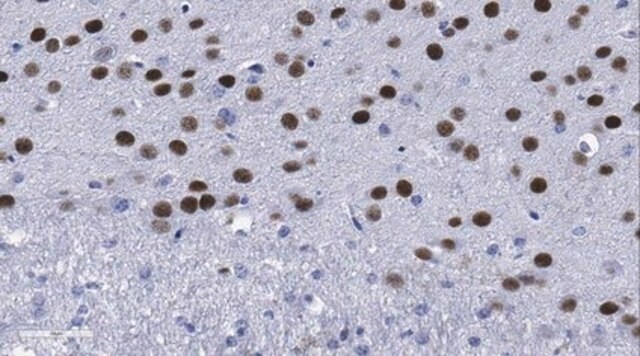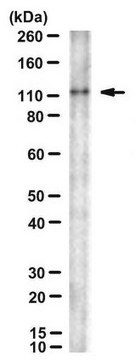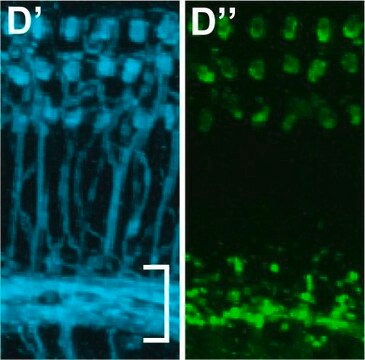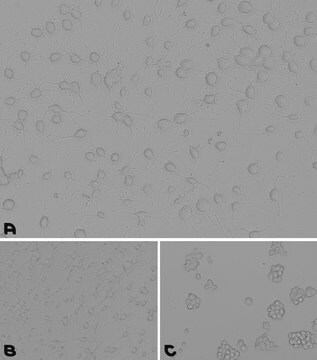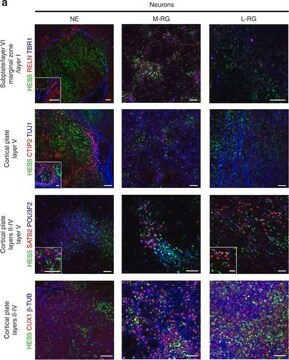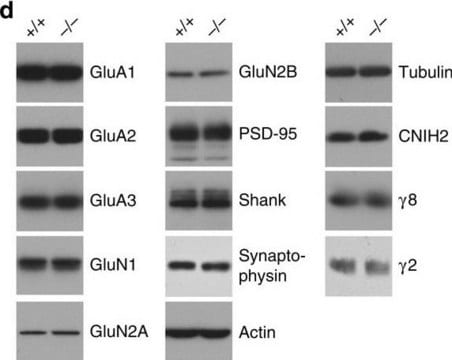MABD51
Anti-Brn-2 (POU3F2) Antibody, clone 8C4.2
clone 8C4.2, from mouse
Synonym(s):
POU domain, class 3, transcription factor 2, Brain-specific homeobox/POU domain protein 2, Brain-2, Brn-2, Nervous system-specific octamer-binding transcription factor N-Oct-3, Octamer-binding protein 7, Oct-7, Octamer-binding transcription factor 7, OTF
About This Item
Recommended Products
biological source
mouse
Quality Level
antibody form
purified immunoglobulin
antibody product type
primary antibodies
clone
8C4.2, monoclonal
species reactivity
rat, human
technique(s)
immunohistochemistry: suitable (paraffin)
western blot: suitable
isotype
IgG1κ
NCBI accession no.
UniProt accession no.
shipped in
wet ice
target post-translational modification
unmodified
Gene Information
human ... POU3F2(5454)
General description
Immunogen
Application
Quality
Western Blot Analysis: A 1:2,000 dilution of this antibody detected Brn-2 (POU3F2) in 10 µg of SK-N-MC cell lysates.
Target description
The calculated molecular weight is 47 kDa Brn-2 (POU3F2) may be observed at ~50-55 kDa in some cell lysates (Wolfe, A., et al., (2002). Molecular Endocrinology. 16(3):435-449).
Physical form
Analysis Note
SK-N-MC cell lysates
Not finding the right product?
Try our Product Selector Tool.
Storage Class Code
12 - Non Combustible Liquids
WGK
WGK 1
Flash Point(F)
Not applicable
Flash Point(C)
Not applicable
Regulatory Listings
Regulatory Listings are mainly provided for chemical products. Only limited information can be provided here for non-chemical products. No entry means none of the components are listed. It is the user’s obligation to ensure the safe and legal use of the product.
JAN Code
MABD51:
Certificates of Analysis (COA)
Search for Certificates of Analysis (COA) by entering the products Lot/Batch Number. Lot and Batch Numbers can be found on a product’s label following the words ‘Lot’ or ‘Batch’.
Already Own This Product?
Find documentation for the products that you have recently purchased in the Document Library.
Our team of scientists has experience in all areas of research including Life Science, Material Science, Chemical Synthesis, Chromatography, Analytical and many others.
Contact Technical Service